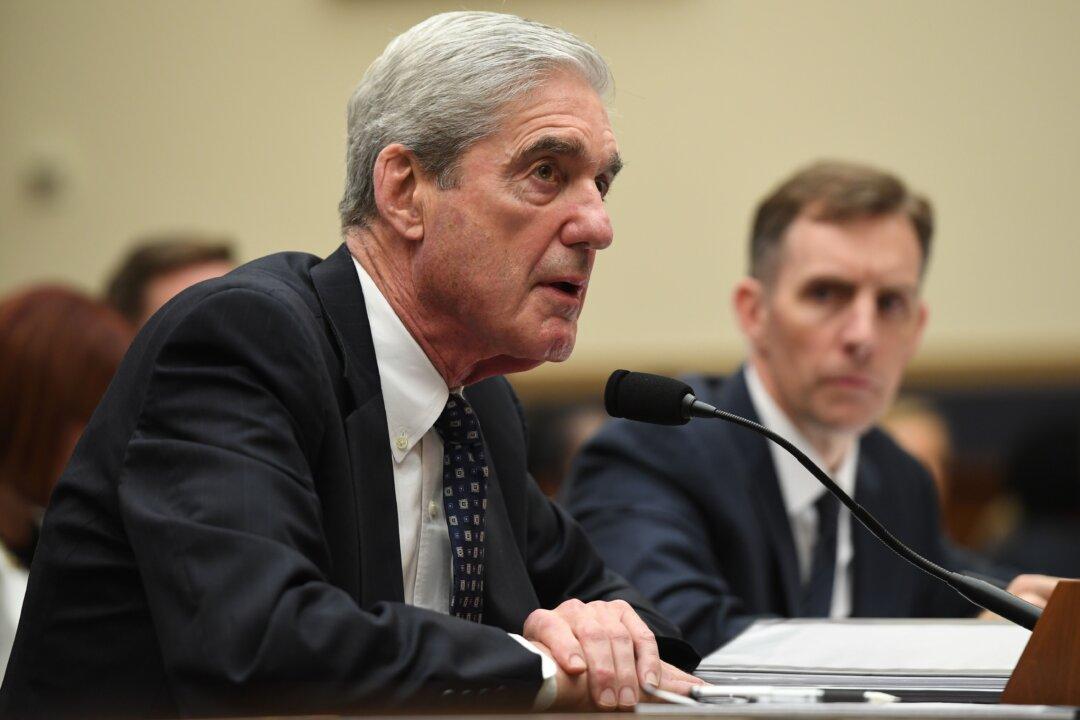The Supreme Court on Wednesday has agreed to temporarily shield grand jury documents from former special counsel Robert Mueller’s Russia investigation from being disclosed to Congress.
The top court granted the Trump administration’s emergency request for a temporary stay of a lower court’s order that gives the Democratic-led House Judiciary Committee access to grand jury information redacted from Mueller’s 448-page report, including transcripts or exhibits referenced in the redactions. The temporary stay is granted pending the filing and consideration of an appeal (pdf).




